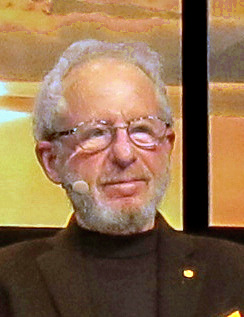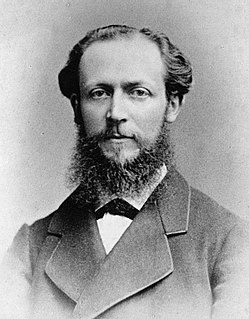A Quote by Elias James Corey
Chemical compounds of carbon can exist in an infinite variety of compositions, forms and sizes. The naturally occurring organic substances are the basis of all life on Earth, and their science at the molecular level defines a fundamental language of that life.
Related Quotes
Few scientists acquainted with the chemistry of biological systems at the molecular level can avoid being inspired. Evolution has produced chemical compounds exquisitely organized to accomplish the most complicated and delicate of tasks. Many organic chemists viewing crystal structures of enzyme systems or nucleic acids and knowing the marvels of specificity of the immune systems must dream of designing and synthesizing simpler organic compounds that imitate working features of these naturally occurring compounds.
Carbon dioxide is natural. It occurs in Earth. It is a part of the regular lifecycle of Earth. In fact, life on planet Earth can’t even exist without carbon dioxide. So necessary is it to human life, to animal life, to plant life, to the oceans, to the vegetation that’s on the Earth, to the, to the fowl that - that flies in the air, we need to have carbon dioxide as part of the fundamental lifecycle of Earth.
Originally, the atoms of carbon from which we're made were floating in the air, part of a carbon dioxide molecule. The only way to recruit these carbon atoms for the molecules necessary to support life-the carbohydrates, amino acids, proteins, and lipids-is by means of photosynthesis. Using sunlight as a catalyst the green cells of plants combine carbon atoms taken from the air with water and elements drawn from the soil to form the simple organic compounds that stand at the base of every food chain. It is more than a figure of speech to say that plants create life out of thin air.
So many of the chemical reactions occurring in living systems have been shown to be catalytic processes occurring isothermally on the surface of specific proteins, referred to as enzymes, that it seems fairly safe to assume that all are of this nature and that the proteins are the necessary basis for carrying out the processes that we call life.
If you search the scientific literature on evolution, and if you focus your search on the question of how molecular machines - the basis of life - developed, you find an eerie and complete silence. The complexity of life's foundation has paralyzed science's attempt to account for it; molecular machines raise an as-yet-impenetrable barrier to Darwinism's universal reach.



































